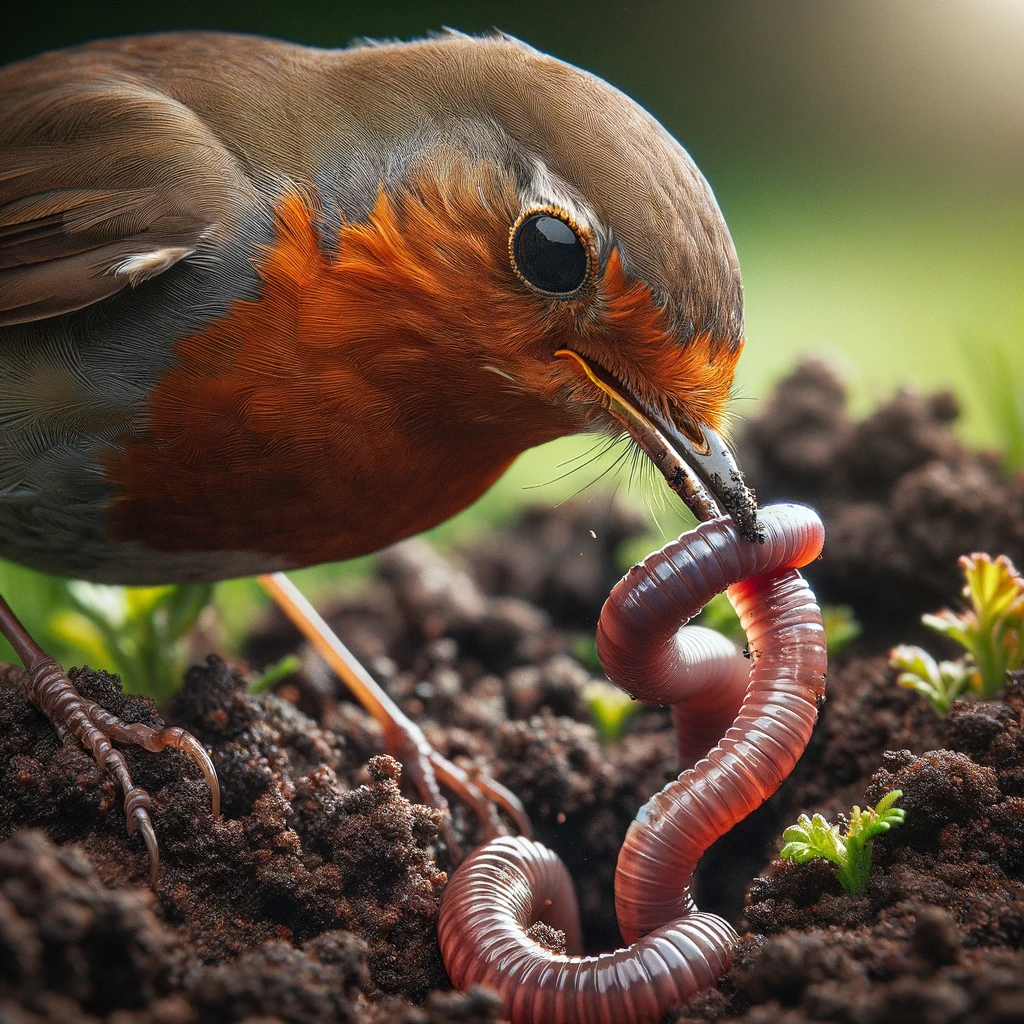Worm
Definition
A "worm" primarily refers to a slender, soft-bodied, legless, elongated invertebrate animal, such as an earthworm or parasitic nematode. It can also colloquially refer to computer malware designed to spread across systems.
Parts of Speech
- Noun
- Verb
Pronunciation
American English
- IPA Pronunciation: /wɜrm/
- Respelling: wurm
British English
- IPA Pronunciation: /wɜːm/
- Respelling: wurm
In both American and British English, "worm" is pronounced with a vowel sound similar to the "ur" in "nurse." The primary difference lies in the length of the vowel sound; the American pronunciation is slightly shorter (rhotic), while the British pronunciation is longer (non-rhotic). The final sound is an "m," as in "mom."
Etymology
The term "worm" comes from the Old English "wyrm", which primarily meant "serpent" or "dragon". Over time, its meaning shifted to refer to the slender, crawling invertebrates that are commonly found in soil.
Derivatives
- Wormlike
- Wormhole
- Wormwood
- Wormy
- Wormcast
Synonyms
- Vermis
- Nematode
- Helminth
Antonyms
- Predator
- Bird (in the context of a food chain)
- Mammal
Usage
The word "worm" is commonly used in biological and ecological contexts to describe various elongated invertebrates. Beyond that, in the realm of technology, "worm" refers to malicious software that replicates itself in order to spread to other computers.
Related Terms
- Larva
- Caterpillar
- Grub
- Maggot
- Computer virus
Detailed Definition
Noun
- Any of various creeping or crawling invertebrate animals, typically with a long slender soft body and no limbs.
- Example: The robin pulled a juicy worm from the ground.
- A malicious software program that replicates itself over a computer network and usually performs malicious actions, such as using up the computer's resources and possibly shutting the system down.
- Example: A computer worm spread through the network, slowing down the servers.
Verb
- To move with a wriggling or twisting motion, similar to that of a worm.
- Example: She managed to worm her way through the narrow opening.
- To obtain, extract, or get something with difficulty, typically by indirect or subtle means.
- Example: He wormed the secret out of her after hours of persuasion.
worm



🇨🇳 Mandarin (Simplified Chinese)
- 虫 (chóng)
- IPA: /ʈʂʰʊŋ˥˩/
- Respelling: chong
🇮🇳 Hindi
- कीड़ा (kīṛā)
- IPA: /kiːɽaː/
- Respelling: kee-raa
🇪🇸 Spanish
- Gusano
- IPA: /ɡuˈsano/
- Respelling: goo-sah-no
🇫🇷 French
- Ver
- IPA: /vɛʁ/
- Respelling: ver
🇦🇪 Modern Standard Arabic
- دودة (dūda)
- IPA: /ˈduːda/
- Respelling: doo-dah
🇧🇩 Bengali
- পোকা (pōkā)
- IPA: /poːkaː/
- Respelling: poh-kaa
🇷🇺 Russian
- Червь (cherv’)
- IPA: /ʈ͡ʂerfʲ/
- Respelling: cherf
🇵🇹 Portuguese
- Minhoca
- IPA: /miˈɲokɐ/
- Respelling: min-yoh-kah
🇮🇩 Indonesian
- Cacing
- IPA: /'ʧa.tʃiŋ/
- Respelling: cha-ching
🇩🇪 German
- Wurm
- IPA: /vʊʁm/
- Respelling: vurm
🇯🇵 Japanese
- 虫 (mushi)
- IPA: /muɕi/
- Respelling: moo-shee
🇻🇳 Vietnamese
- Giun
- IPA: /ʒiun˧ˀ˨ʔ/
- Respelling: zhoon
🇰🇷 Korean
- 벌레 (beolle)
- IPA: /bʌl.le/
- Respelling: buhl-leh
🇹🇷 Turkish
- Solucan
- IPA: /so.lu.d͡ʒan/
- Respelling: so-loo-jahn
🇵🇰 Urdu
- کیڑا (kīṛā)
- IPA: /kiːɽaː/
- Respelling: kee-raa





